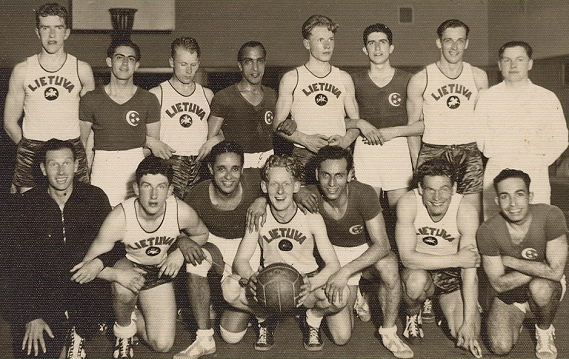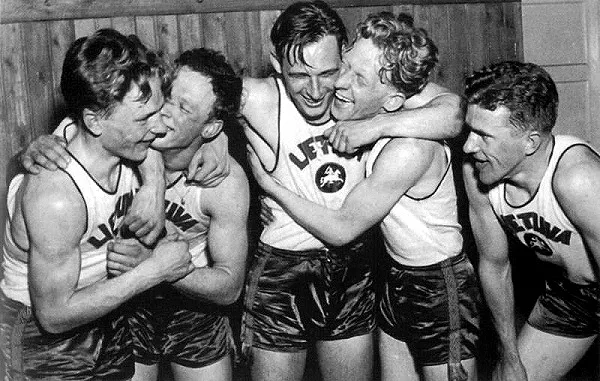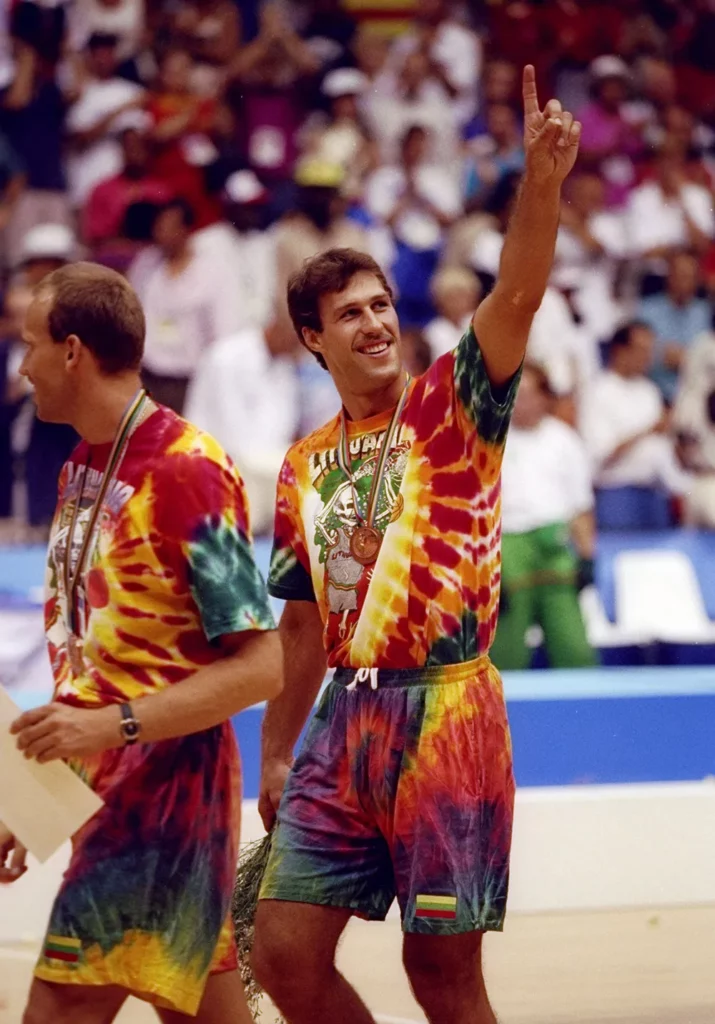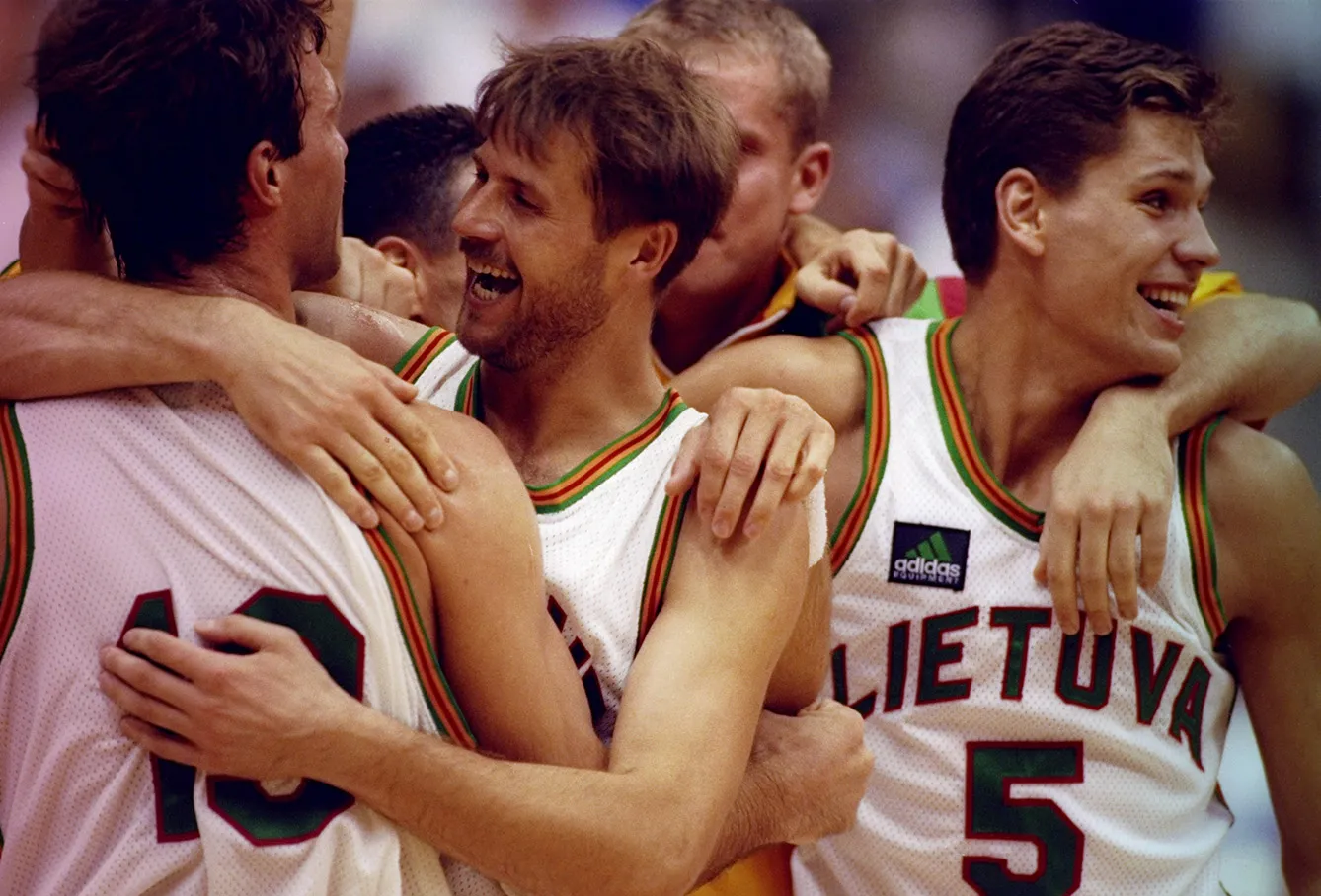Basketball in Lithuania is called “the second religion.” However, it is not only about the country’s collective achievements that have helped to coin the term. It is much more about the times basketball became an inseparable part of Lithuanian identity.
Lithuania’s introduction to basketball happened during the interwar period between WWI and WWII. Basketball was thriving in the United States, and Lithuanian expats living there fell in love with the game and decided to bring it back to their homeland. These athletes frequently visited to coach and pass along the game’s secrets. They also prepared the national team for the 1937 Eurobasket Championship, which Lithuania unexpectedly won, beating Italy by one point.


From that moment on, the popularity of basketball skyrocketed. Basketball courts and hoops constructed from metal barrels started to appear all around the country. As the gold medalists of Eurobasket, Lithuania was granted the right to organize the championship in 1939. For that reason, Europe’s first dedicated basketball arena was built, and the Lithuanian national team once again managed to win the championship. This time against Latvia, with the result 36-37, scoring at the last second. With these two championships, Lithuanians fell in love with basketball.
Basketball against the Soviets

Although World War II broke out later that year, and Lithuania was subsequently occupied in 1940, even those tragic events did not manage to destroy the newly found passion. In 1941, the Soviet Union began the mass deportations to Siberia of those seen as enemies of the new communist state. But even in some forced labor camps, Lithuanians organized basketball teams and played tournaments in the summer. According to many, this activity helped them retain their confidence and human dignity in harsh conditions.
However, the most important date in Lithuania’s basketball history was probably 1944, as this was the year the Žalgiris sports club was established, soon becoming the most successful and well-known Lithuanian basketball organization.
In the Soviet years, Žalgiris was a symbol of resistance. In 1947, the club triumphed in the Soviet Union championship, beating CSKA Moscow, and repeated this achievement five more times. In those years, it was one of the very few ways to express resistance against an aggressive regime. Those who lived through that period remember that any time Žalgiris was matched up against CSKA Moscow, the streets of towns and cities across the country were like ghost towns, with residents holed up anywhere they could follow the game.
The sovereign Lithuanian basketball
The main line-up of Žalgiris was also a core of the Soviet national team. In the Seoul Olympics in 1988, four out of five starting players for the Soviet Union were from Žalgiris. All four of them became the Olympic champions. Luckily that was the last time the glory was brought to the Soviet Union. The Soviet state unexpectedly collapsed three years later. And in the 1992 Olympics, Lithuania finally participated as a sovereign state.
The 1992 Olympic games are often remembered for the US national team, aka the “Dream Team,” featuring Michael Jordan, Larry Bird, and others. Still, not many remember that the Lithuanian national team was often called “the other dream team” that summer. The team symbolized the dream of their nation to be a part of the free world. Lithuania won the bronze medals in Barcelona and repeated this achievement twice more – in the Atlanta and Sydney Olympics. The dream has come to life.







